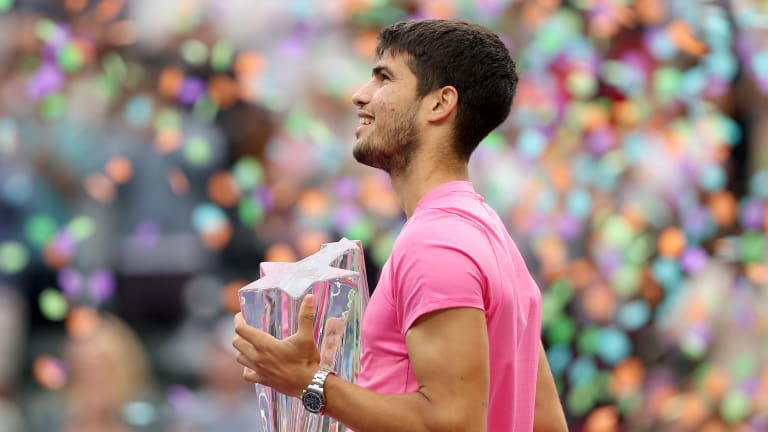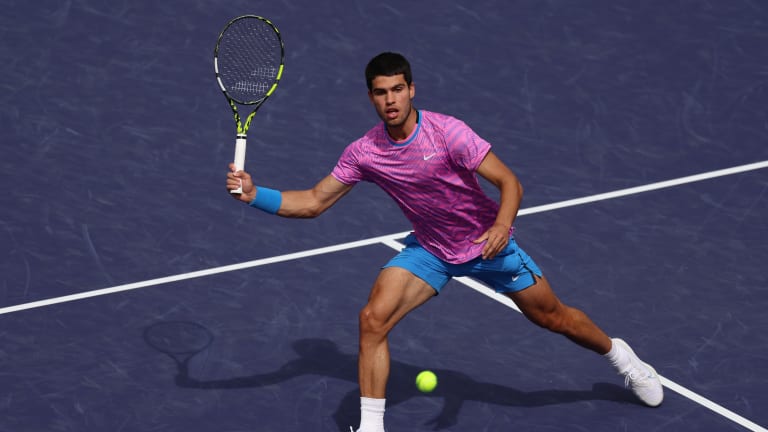Indian Wells, USA
Carlos Alcaraz hurt by online criticism: “I see a lot of the comments that the people give to you”
By Mar 11, 2024Indian Wells, USA
Mackenzie McDonald is paying the college tennis experience forward with a new fund
By Mar 17, 2025Indian Wells, USA
Mirra Andreeva and Jack Draper win breakthrough titles at Indian Wells: What did we just witness?
By Mar 17, 2025Indian Wells, USA
Jack Draper's run through Indian Wells concludes with his first ATP Masters 1000 title
By Mar 16, 2025Indian Wells, USA
Holger Rune vs. Jack Draper: Where to Watch, Indian Wells Preview, Betting Odds
By Mar 16, 2025Indian Wells, USA
Holger Rune reaches first Indian Wells final over Daniil Medvedev
By Mar 15, 2025Indian Wells, USA
Mirra Andreeva vs. Aryna Sabalenka: Where to Watch, Indian Wells Preview, Betting Odds
By Mar 15, 2025Indian Wells, USA
Mirra Andreeva, 17, advances to Indian Wells final, beating Iga Swiatek in chilly conditions
By Mar 15, 2025Indian Wells, USA
Ruthless Aryna Sabalenka storms past Madison Keys, 6-0, 6-1, in semifinals of Indian Wells
By Mar 15, 2025Indian Wells, USA
Carlos Alcaraz vs. Jack Draper: Where to Watch, Indian Wells Preview, Betting Odds
By Mar 15, 2025Carlos Alcaraz hurt by online criticism: “I see a lot of the comments that the people give to you”
Success, the 20-year-old says, starts with getting back to being his free-spirited self on court.
Published Mar 11, 2024
Advertising

Carlos Alcaraz hasn't won a hard-court tournament since last year's BNP Paribas Open.
© Getty Images
Advertising

As Alcaraz says, the important thing for him is to feel and play like himself—to be Carlitos. “I’m looking in every match how I feel, how I hit the ball, how I move.”
© Getty Images